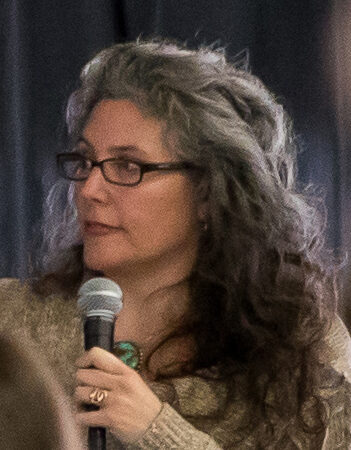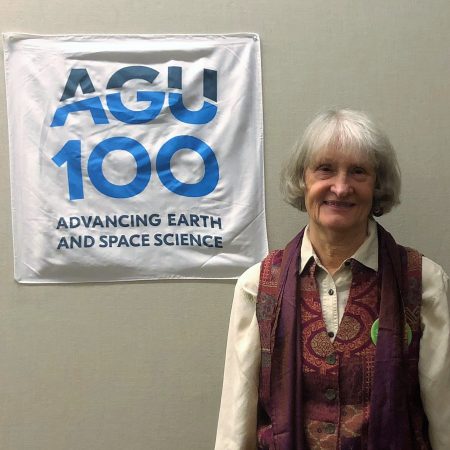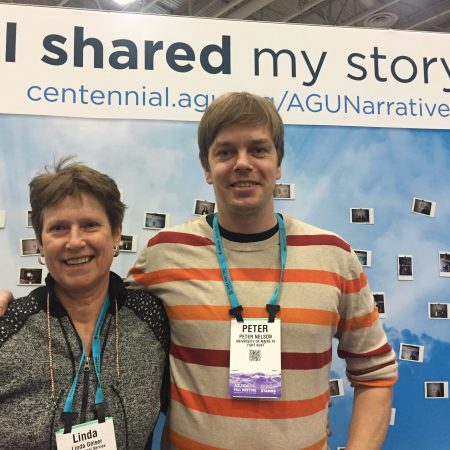Refine
Date Range Clear
Recorded by Clear
Keywords Clear
- nonlinear geophysics 219
- geophysics 219
- #AGU 219
- changing climate 219
- atmosphere 219
- #AGU100 217
- discovery 69
- NASA 64
- #womeninscience 41
- Advice 28
- #NASA 27
- 473 more
Partnerships Clear
- No matching terms.
Organizations Clear
- American Geophysical Union 67
- NASA 18
- National Aeronautics and Space Administration 9
- The American Geophysical Union 5
- American Geopysical Union 4
- 16 more
Places Clear
- AGU 2018 Fall Meeting 167
- Washington DC 165
- AGU 2019 Fall Meeting 22
- San Francisco 21
- AGU 2017 Fall Meeting 5
- 16 more
Languages Clear
Initiatives Clear
- No matching terms.
Warren Washington, a pioneer of climate modeling, shares his story with Rajul Pandya about his career in the atmospheric sciences. Discussing a lifetime pushing for the growth of diversity in the sciences and a better understanding of the climate. Going...
Anne Quidez interviews her father, Bernardo Quidez, about his career and research over the years. They talk about how science and data analysis have changed, becoming more accessible to students, and about Bernardo’s experiences in working for the government to...
Mary Hudson and Bill Lotko are both professors at Dartmouth University and researchers at the National Center for Atmospheric Research. Both study space physics, with Mary focusing on Van Allen radiation belts, and Bill looking at interactions between the magnetosphere...
With experiences from Azerbaijan, India and the United States, three scientists discuss how they’ve shared their passion for science in society and data transparency from generation to generation. They hope future generations continue to use data to help people withstand...
Michele Koppes and Heidi Roop met “on an incredible landscape on the edge of the Greenland ice sheet about two years ago.” The conversation that followed made both of them think more closely about the value of science communication and...
Just a few short months ago, Nicola Fox took over as Director of NASA’s Heliophysics Lab. She’d been prepping for the role a lifetime, however, recounting how she started her scientific career when she was eight months old, thanks to...
Environmental chemist Marc Kramer, Washington State University, has spent an inordinate amount of time talking and climate and weather in the rural parts of your nation. As he says in this interview, “there isn’t a single farmer who isn't interested...
Putting up tall PVC pipes with pointy sensors to measure electrical fields in an approaching lightning storm may seem reckless, but it’s all part of the job for Timothy Lang. The NASA research scientist spends a lot of time in...
George Huffman calls himself a classic weather person, in part because by the fourth grade in North Central Ohio, he already was excited about the prospect that you could make a job studying weather. At the NASA Goddard Space Flight...
Kristen Erickson, Director of science engagements and partnership, recently helmed NASA’s efforts to involve over 154 million adult Americans with direct participation with the 2017 total eclipse – the largest engagement effort in NASA history. But in her more than...
There’s a bit of a culture change moving from Ohio to New Hampshire, which Melanie Perello, Ph.D. candidate at Indiana University, did as part of her studies. Would you be surprised that going from either to Tibet to study paleoclimate...
Elizabeth Rampe, a mineralogist, studying Mars at the NASA Johnson Space Center, shares about her life and work. She focuses on minerals on the surface of Mars which formed from water-rock interactions, which have the potential to show billions of...
Why do people feel they way they do about issues? Why do lawmakers and policy leaders seemingly act against their better interests? And how can information be developed in a way that leads not just to greater understanding, but to...
Dr. Matthew Johnson's research is in atmospheric chemistry, a branch of atmospheric science, which looks at the composition and chemistry of Earth's atmosphere, such as aerosols and trace gas emissions, and how particles may impact human health. Dr. Johnson's research...
Bärbel Hönisch, Associate Professor of Environmental Sciences at Columbia University also known as Queen of Boron, transported us millions of years beyond the ice cores to the realm when Greenland had no ice. She took hold of a magical instrument...
How can scientists tell the story of science so that the public listens and understands? Dwayne Brown is the Senior Communication Officer for the Science Directorate at NASA and works with hundreds of scientists to communicate their ideas on television,...
Amber Soja’s career is on fire. The resident at NASA’s Langley Research Center studies fire regimes and how they are being affected by climate change. “Every fire season is worse,” she says, adding that the changing fire regime is proof...
Michael Meyer, NASA's Chief Scientist for the Mars Exploration Program, talks about his life and work in science. As a teenager working as a deckhand on a treasure diving boat in Florida, he was hired to replace some fired divers...
For the last 14 years, Gari Mayberry has put her volcanology background to work as a disaster response coordinator at USAID. Disasters come in many shapes and sizes so that specialty is a start, but often Gari finds herself connecting...
Michelle Thaller, science communicator at NASA Goddard, discusses how she persisted in following her scientific passions even after being discouraged by teachers and guidance counselors. She also talked about why non-scientists should care about things so far away from Earth:...
Clouds are among the most unpredictable components of climate models. But Norman Loeb is working hard to sort out the shape of cloud patterns in order to improve the accuracy of long-term weather predictions. As far as understanding how all...
Daniella Scalice is the Education and Communications Lead for NASA’s Astrobiology program, and she sits in NASA’s MAIANSE program for incorporating American Indian and Alaska Native science into NASA’s STEM research and education initiatives. She works in western and Indigenous...
Laurie Brown, Professor Emeritus at the University of Massachusetts, has been a member of AGU for 46 years. She shares her observations on the growth of paleomagnetism at AGU and its importance in helping address climate. She also discusses how...
Dr. Claire Parkinson, senior scientist at NASA's Goddard Space Flight Center since 1978, discusses using satellite data to monitor sea ice in the Arctic and Antarctic and serving as project scientist for the NASA satellite Aqua, which makes measurements of...
Linda Geiser and Peter Nelson tell their own stories and reflect on the impact they’ve had on each other lives. They’re both currently with the US Forest Service but first met when Linda hired Peter after he finished university to...
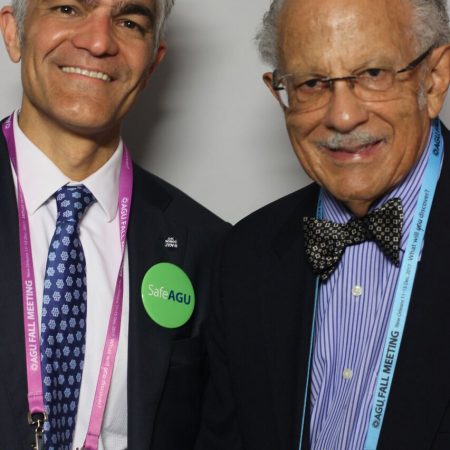
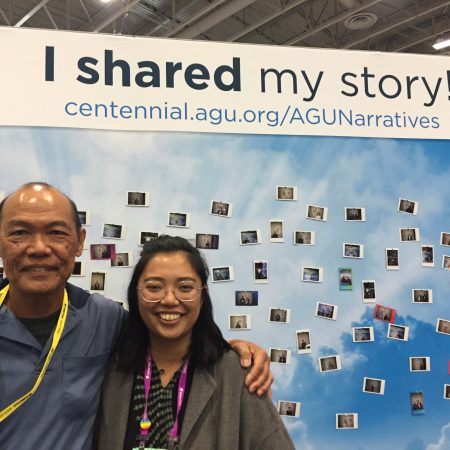
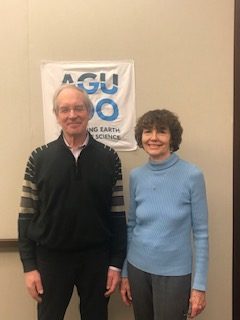
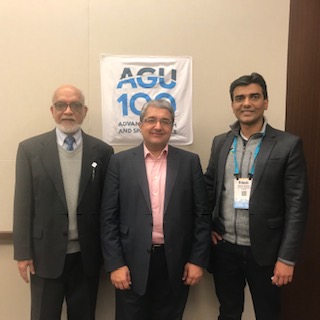
![“How is it that we collect stories [and] create spaces for those stories to be told?” An interview with Michele Koppes and Heidi Roop](https://archive.storycorps.org/uploads/2019/07/181212_Koppes-and-Roop_Booth-450x450.jpg)
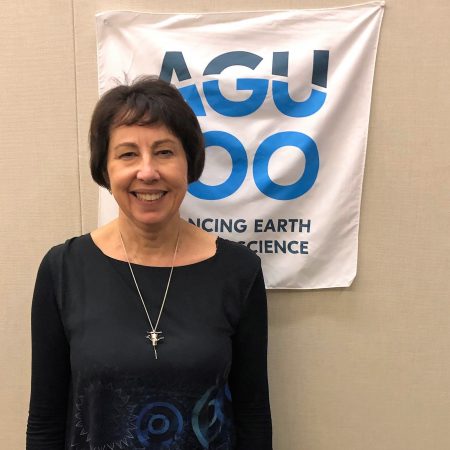
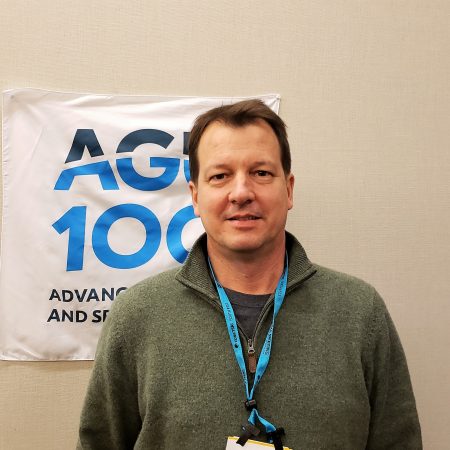

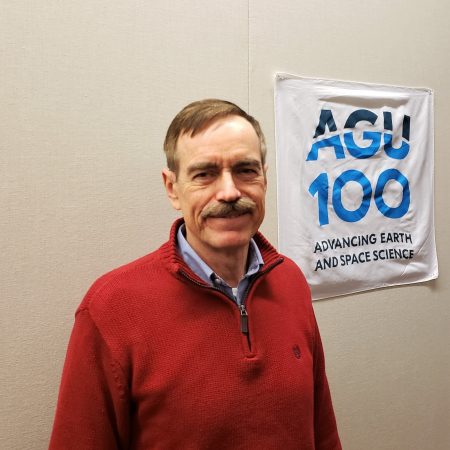
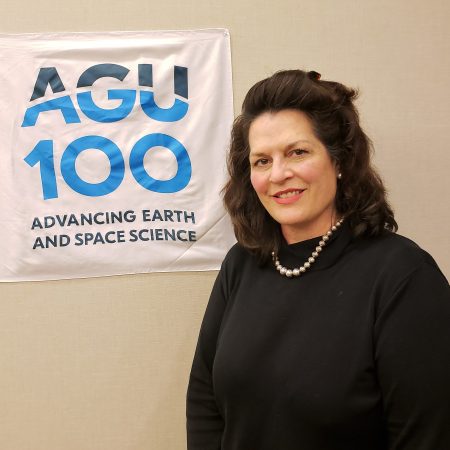
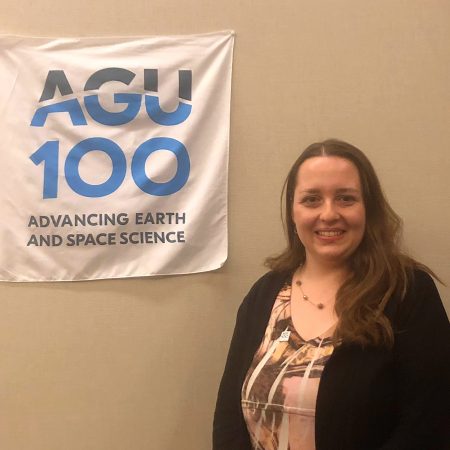


!["If you really enjoy it [science], all the work will be worth it." An interview with Matthew Johnson.](https://archive.storycorps.org/uploads/2021/02/6038002972612__M.Johnson_ceremony_pic_2020.11.11_submit_PROFILE-450x450.jpg)
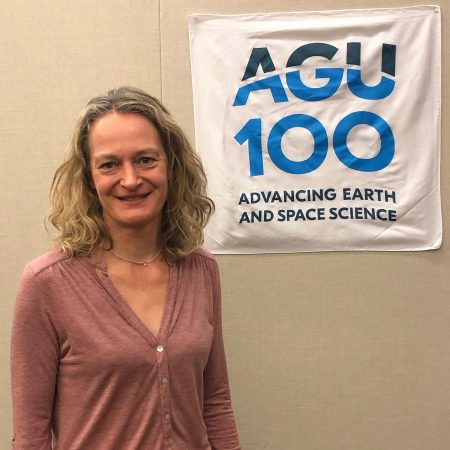
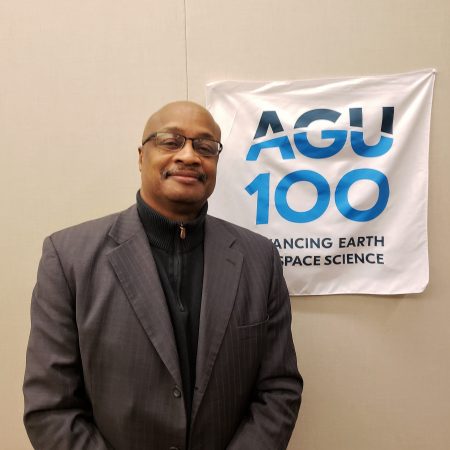

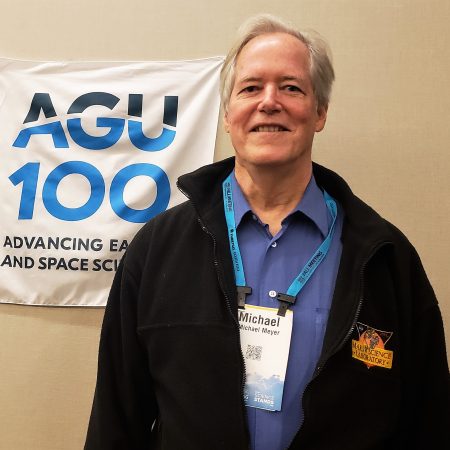
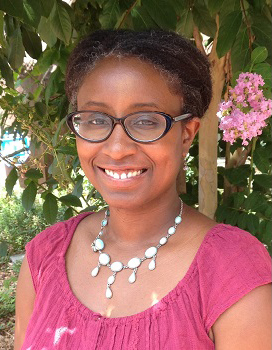
!["I've been a professional astronomer for over 20 years, [and it] still gives me goosebumps." an interview Michelle Thaller](https://archive.storycorps.org/uploads/2019/02/20181211_Thaller-450x450.jpg)

